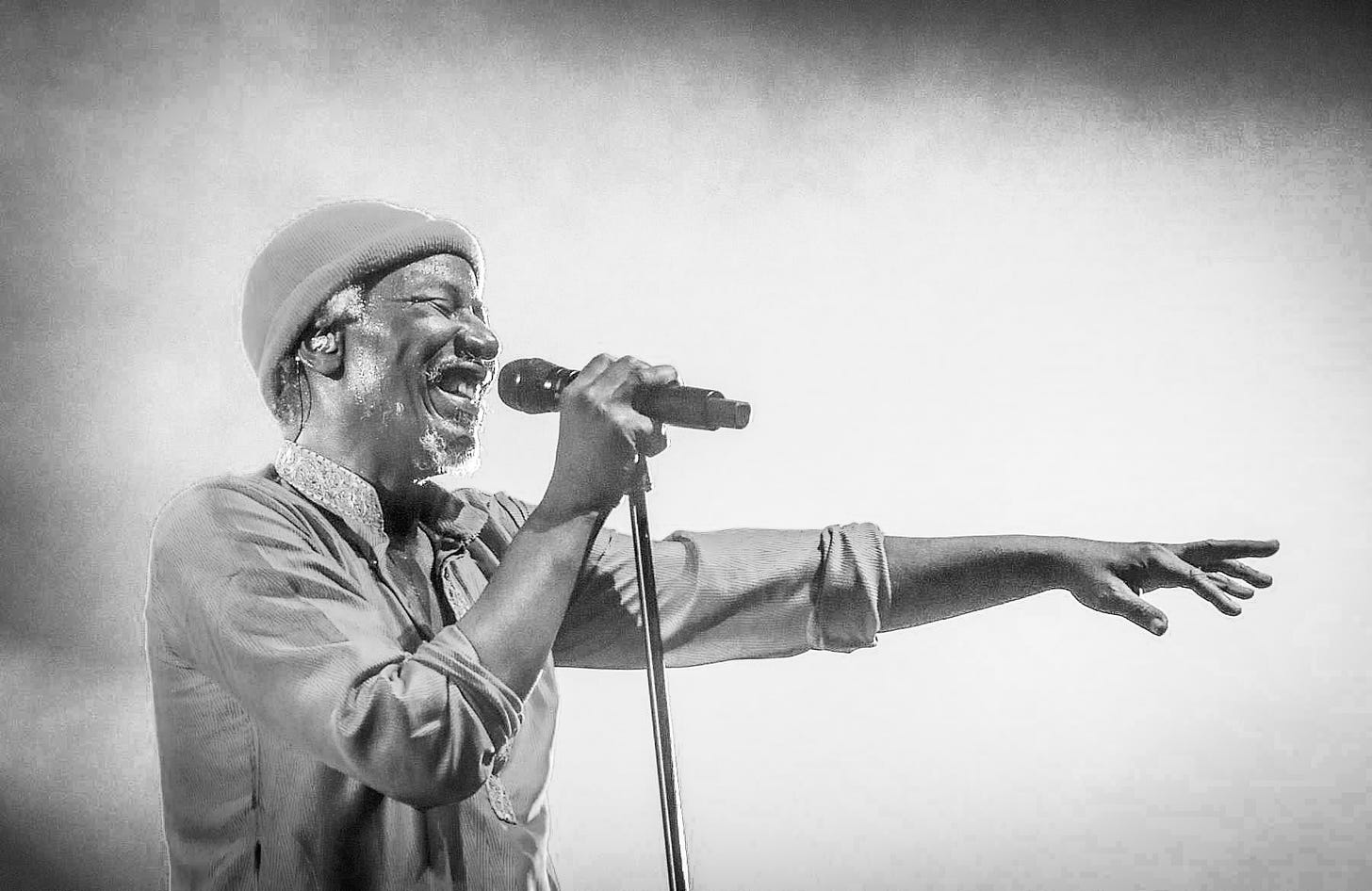By Max Sattonnay
Blame it on songs like “Kalachnikov Love.” When it comes to politics, you know where Alpha Blondy is coming from.
Best known for the French-language 1986 hit “Jerusalem”, the Côte d’Ivoire reggae singer became known as the African Bob Marley.
It didn’t hurt that these two songs were recorded in Jamaica with the late Marley’s band, The Wailers. Musically, the comparison was spot on, regardless.
Now in his early seventies, Alpha Blondy’s brilliant career is a testimony to his originality. Bob Marley may have been an inspiration, but Blondy is his own artist.
The Battleground’s Max Sattonnay sat down with the reggae legend ahead of his performance at this year’s Rototom festival in Benicassim, Spain, and talked politics.
As an ambassador for ECOWAS (Economic Community of West African States), Alpha Blondy shared his views on the role of culture in healing colonialism's wounds.
Max Sattonnay: You’re an ambassador for peace with ECOWAS. Can you tell us more about your role and your efforts?
Alpha Blondy: I’ve been trying to play my part as a peacemaker in the ECOWAS zone, doing everything I can to avoid war. I don't want the war. But the war came in Mali. The war came in Burkina. The war came in Niger.
What's happening is high above me. I'm not a politician. I'm a narcissist, and I'm trying to use the fact that I'm known, that I'm popular. But I believe in using my voice as an artist to bring people together in peace.
Max Sattonnay: You’ve mentioned that the legacy of colonisation still weighs heavily on many African countries. How do you see this affecting the current situation?
Alpha Blondy: Colonisation wasn't just about land but about controlling resources. The economic interests of former colonial powers still impact the region, and this creates tension. But more than that, colonisation left a lasting impact on knowledge and culture.
Colonisation is the application of epistemicide. We’ve been rebuilding ever since, trying to rediscover who we are as Africans. What's happening today is a reconstruction of the black man, of the African man, trying to change the paradigm (and) the narrative about Africa.
Max Sattonnay: Some compare the new military leaders in Mali, Burkina Faso, and Niger to Thomas Sankara. Do you think this comparison holds?
Alpha Blondy: The mindset of Sankara is still alive. Sankara’s legacy is powerful, but we have to be careful. Each leader will be judged by their actions, whether they work to decolonise their countries or fall into the same traps as others before them.
What’s clear is that people's mindsets are changing. They’re not willing to be marginalised anymore. The new mindset of Africans is not the same as our forefathers.
So, I hope that today, the young generation of politicians, who have studied in big universities and are very smart, will find intelligent and efficient solutions.
Max Sattonnay: You’ve also been vocal about the role of the media and freedom of speech in Africa. How has the situation evolved since you released your song "Journaliste en Danger" about the murder of Norbert Zongo?
Alpha Blondy: Now, the big word is freedom of press, la liberté d’expression.
In Africa, people are very simple. Our mentality is that every truth cannot be said. We’re still learning how to balance freedom of expression and stability. Saying or writing something that creates unnecessary tension can have serious consequences.
We need to build our democracies with care, and that requires a sense of responsibility from everyone, including journalists. Independent journalism is very important for building solid democracies. Freedom of speech is critical but must be used responsibly.
Max Sattonnay: Finally, looking back at your song "Jerusalem," how would you approach that song today in light of ongoing conflicts?
Alpha Blondy: I would still sing about peace. The situation is heartbreaking. People are manipulated into conflict, Semite versus Semite.
The war is older than Benjamin Netanyahu and the leaders of Hamas. But I believe that one day, peace will come. Peace is possible. We just need to keep faith.
Photograph courtesy of Peter Verwimp/Wikipedia. Published under a Creative Commons license.




